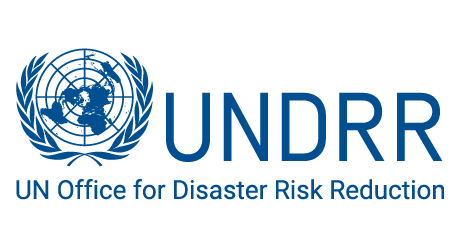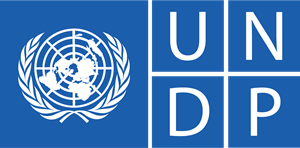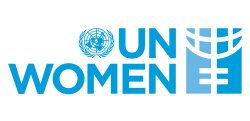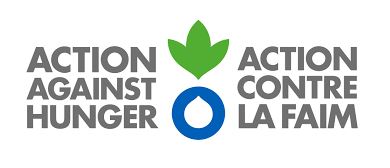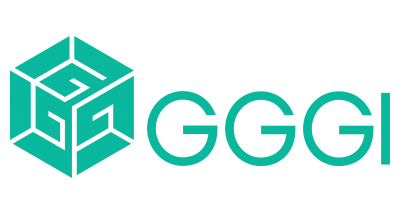Duties and Responsibilities
Created in December 1999, the United Nations Office for Disaster Risk Reduction (UNDRR) is the designated focal point in the United Nations (UN) system for the coordination of efforts to reduce disasters and to ensure synergies among the disaster reduction activities of the United Nations and regional organizations and activities in both developed and less developed countries. Led by the United Nations Special Representative of the Secretary-General for Disaster Risk Reduction (SRSG), UNDRR has over 160 staff located in its headquarters in Geneva, Switzerland, and in regional offices. Specifically, UNDRR guides, monitors, analyzes, and reports on progress in the implementation of the Sendai Framework for Disaster Risk Reduction 2015–2030 (Sendai Framework), supports regional and national implementation of the Framework and catalyzes action, and increases global awareness to reduce disaster risk by working with UN Member States and a broad range of partners and stakeholders, including civil society, the private sector, parliamentarians, and the science and technology community. This consultancy is in keeping with the commitments of UNDRR’s Regional Office for the Americas and the Caribbean (ROAC) to the key aspects of the Sendai Framework for Disaster Risk Reduction 2015–2030, the Sendai Gender Action Plan (Sendai GAP), the Convention on the Elimination of All Forms of Discrimination against Women (CEDAW), and the United Nations Joint Study on Gender Equality and Women’s Leadership in Disaster Risk Reduction (DRR) (https://unwomen.org/sites/default/files/2021-11/Research-paper-Beyond-vulnerability-to-gender-equality-en.pdf). Through its Guiding Principles, the Sendai Framework emphasizes the need to pay special attention to those people most disproportionately affected by disasters and that gender, age, disability, income, and intercultural perspectives should be integrated into all policies, programmes, and practices, while also calling for a multisectoral, multi-hazard, and multi-stakeholder approach to disaster risk reduction with appropriate mitigation, prevention, risk reduction, and risk management measures. Building on the priorities for action and targets set out in the Sendai Framework and through a conceptual shift towards the mainstreaming of the systemic nature of disaster risk as an integral and determining factor in development processes, UNDRR recognizes the importance of the active and meaningful engagement of all sectors and stakeholders, ensuring the empowerment of women and girls in all their diversity, as well as a multi-hazard approach, to accelerate the Sendai Framework’s implementation and to ensure that no one is left behind in the Americas and the Caribbean. Gender-responsive DRR implies understanding how people’s lives are affected by gender norms, roles, and relations within a given culture and society, which is fundamental to understanding the underlying factors of risk and thus reducing disaster risk. Women, girls, boys, men, and people of diverse gender identities face different vulnerabilities in different contexts. Each context has different vulnerabilities that affect how individuals and population groups experience and recover from disaster impacts, but also how they can best prepare to avoid disasters and recover more effectively when one occurs. UNDRR supports gender-transformative DRR that not only identifies and meets the different and intersectional needs of women and girls, men and boys, and people of diverse gender identities but also seeks to redress the underlying causes of vulnerability and risk through a gender lens—by putting women’s resilience and leadership at the center of DRR strategies, policies, and programming—to promote more inclusive and comprehensive risk-sensitive development with a view to leaving no one behind. Known as the “Sendai GAP,” this Action Plan supports governments and other stakeholders in reducing the negative impacts of gender discrimination and inequality in disasters by strengthening institutional capacity to promote gender equality in DRR, advancing gender-responsive DRR financing, improving access to data, and supporting women’s full and meaningful participation in DRR governance and decision-making—among other tangible areas of work for States and stakeholders—to ensure that women are not left behind in disaster risk reduction efforts. Part of UNDRR’s efforts to work on disaster risk reduction under a gender-responsive lens is carried out through the project “Gender Equality and Women’s Empowerment: Disaster Resilience in Latin America and the Caribbean (LAC),” a project funded by the Government of Canada through Global Affairs Canada (GAC). It builds on the momentum of the Sendai Framework Midterm Review (MTR) to advance gender equality and women’s empowerment in DRR. It aims to strengthen understanding of disaster risk—including vulnerability, exposure, and coping capacity—to enable more comprehensive, climate-smart, and risk-informed decision-making at all levels: individual, household, community, national, and regional. In this context, UNDRR’s Regional Office for the Americas and the Caribbean is seeking a consultant to support the implementation of the Sendai GAP at the regional level and to contribute to the coordination and strengthening of the LAC Women’s Network for Disaster Risk Reduction. The Network is a key regional platform that convenes women working in DRR and resilience-building across sectors and promotes inclusive leadership, knowledge-sharing, and advocacy. This consultancy is home-based. Duties and Responsibilities The consultant will be home-based and will be under the supervision of the Regional Coordinator, Early Warning for All and Programme Management Officer of the Regional Office for the Americas and the Caribbean of the United Nations Office for Disaster Risk Reduction, Regional Office for the Americas and the Caribbean. The consultant will contribute to the delivery of targeted activities across three key workstreams: Workstream 1 – Publications and Dissemination Support • Provide coordination and facilitation support for the production of gender-related publications. • Support the development of dissemination materials, such as briefs, newsletter articles, and web or social media content. Workstream 2 – Gender and Finance Knowledge Generation • Contribute to the revision and expansion of gender and finance-related publications, including researching new case studies. • Liaise with partners to ensure quality review and validation. Workstream 3 – Local Resilience and Gender Analysis • Support the drafting and documentation of findings and recommendations from the implementation of resilience tools, including the Disaster Resilience Scorecard and thematic addenda. • Assist in consolidating lessons learned for local governments. Workstream 4 – Monitoring and Evaluation 2025–2026 • Support the design and implementation of monitoring tools, surveys, and focus groups for ongoing gender and DRR projects and Sendai GAP implementation efforts. • Contribute to progress tracking, analysis, and reporting on project outcomes related to better understanding of disaster risk reduction and correlated topics. Workstream 5 – LAC Women’s Network 2025-2026 • Provide coordination and facilitation support to the LAC Women’s Network, including plenary sessions and Working Group activities. • Contribute to visibility efforts through content creation and knowledge-sharing. Workstream 6 – Gender Mainstreaming Tool for Local DRM • Contribute to the design and development of a practical tool for local governments to integrate gender in disaster risk management. • Support consultation processes to ensure the tool reflects regional priorities and diverse stakeholder perspectives. Workstream 7 – Inclusion-Focused Session at the LAC Regional Platform 2026 • Support the design, organization, and delivery of an inclusion-focused in-person session during the LAC Regional Platform on Disaster Risk Reduction 2026. • Coordinate with partners and stakeholders to ensure broad and diverse participation, including identifying panelists and engaging relevant networks. • Prepare background and communication materials, facilitate logistical arrangements, and contribute to the documentation of session outcomes. Workstream 8 – Promoting the Sendai Gender Action Plan (GAP) at National and Sub-National Levels • Identify entry points and stakeholders to strengthen the integration of the Sendai GAP into national and local disaster risk management processes. • Support orientation and awareness-raising activities with government counterparts and other actors to promote gender-responsive approaches. • Contribute to the documentation of key messages, lessons learned, and recommendations to guide continued implementation of the Sendai GAP in the region.
Qualifications/special skills
Master's degree in social or political sciences, urban development, economics, or similar, with a focus on gender equality perspectives, human rights, public policy or administration, international development, disaster risk management, or related fields, is required. A first-level university degree in combination with two (2) additional years of qualifying experience may be accepted in lieu of the advanced university degree. A minimum of three (3) years of progressively responsible working experience in sustainable development, human rights, policy, gender, urban development, marginalized groups, disaster risk reduction, or a related topic is required. Working experience in Latin America and the Caribbean is required. Working experience in a multicultural context is desirable.
